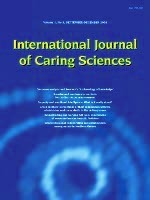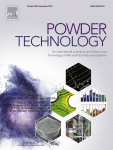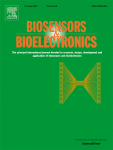چکیده
پس زمینه : امروزه کیفیت زندگی کاری اهمیت زیادی در سطح جهان دارد. سازمان ها با مشکلات زیادی در زمینه منابع انسانی مواجه هستند که مشکلات مربوط به ثبات کارکنان یکی از آن مشکلات است و پرداختن به آن دارای اولویت است در میان دلایل مختلف برای ثبات کارکنان، کیفیت زندگی کاری یکی از آنهاست. کیفیت زندگی کاری ، یک ساختار چند بعدی است که بوسیله متغیر های زیادی تحت تاثیر قرار می گیرد
هدف: توسعه یک مقیاس معتبر و قابل اعتماد با توجه به ابعاد گسترده کیفیت زندگی کاری کارمندان در کارخانه های کوچک و متوسط در کارناتاکا هند
روش: بررسی ها با استفاده از پرسشنامه در میان ۱۰۹۲ کارمند که در کارخانه های مکانیکی فعالیت می کنند انجام شده است . جمع آوری داده ها و تحلیل مولفه های اصلی با استفاده از نرم افزار SPSS16 انجام شده است
نتیجه گیری: ۹ بعد قابل توجه در تحلیل عوامل شناسایی شد: محیط کاری ، جو و فرهنگ سازمانی ، ارتباط و همکاری ، جبران خسارت و پاداش ، آموزش و پیشرفت ، امکانات ، امنیت شغلی و رضایت شغلی ، استقلال کاری و منابع کافی. تجزیه و تحلیل های بیشتر نشان می دهد که این ۹ بعد با هم ، ۲۴/۸۲٪ کل واریانس را توضیح می دهند
Abstract
Background: Nowadays Quality of Work Life is drawing more importance globally, organizations are facing many issues related to human resource of which, employee stability is one of the major problem and addressing it is a top most priority. Amongst various reasons for employee stability the Quality of Work Life is one among them. Quality of work Life is a multidimensional construct and it has been influenced by many variables
Objective: To develop a valid and reliable scale by considering the significant dimensions of Quality of Work Life of employees in Mechanical Manufacturing Small and Medium sized Enterprises (SMEs) in Karnataka, India
Methodology: A survey using a questionnaire was conducted among 1092 employees working in Mechanical Manufacturing SMEs. The data collected was subjected to principal component factor analysis with varimax rotation using SPSS16
Results and conclusion: The following nine significant dimensions were identified based on factor analysis: Work environment, Organization culture and climate, Relation and co-operation, Training and development, Compensation and Rewards, Facilities, Job satisfaction and Job security, Autonomy of work and Adequacy of resources. Further analysis revealed that, these nine dimensions together explained 82.24% of the total variance





